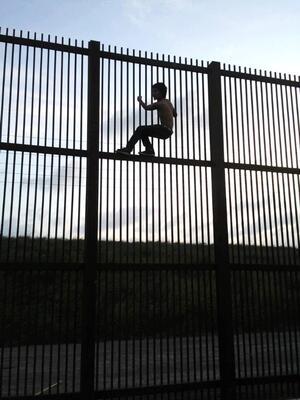Immigration is a Feminist Issue
Summer 2014 shook us out of our slumber. The immigration rhetoric of empty promises and Congressional inaction had become numbing until we saw the desperation in the women’s eyes and fear in the faces of the children at the U.S. Mexico border. The image of 8-year-old Alejandro, alone, gripping a water bottle and facing the border patrol officer with a clip board stopped many of us on our tracks. How could this be happening in the U.S.? Why now?
This past year, more than 60,000 unaccompanied minors have been detained while crossing the US-Mexico border, about three-quarters of them fleeing violence in El Salvador, Guatemala, and Honduras. Many other young children have come with their mothers. Many of these children and women came to the U.S. in June and July 2014.
In many ways, activist and attorney Judy Somberg could have told us this was coming. In her tireless work as a lawyer and advocate both in the U.S. and in El Salvador in the 1980s, she witnessed the complexity of the war torn Central American countries. We don’t often hear about the “push factors” in immigration policy in the U.S. The situation in San Jose Las Flores, El Salvador of political kidnappings, torture and death are not a part of the historical backdrop in our immigration conversation; but they need to be. The reasons that a family decides to leave their community behind is often complex but the fact that many people in these communities have been impacted by decades of war, violence, drug gang activity, torture, and poverty should be considered in the ways that these refugees are treated when they meet authorities at the border.
Instead, there are far too many examples of victims of violence, including women and children, being met with hostility and suspicion. The very nature of our immigration system and border enforcement has created a quota system in which federal agents and lawyers are rewarded for the numbers of people they turn back and order to return. In the meantime, women and children are detained in places like Artesia, New Mexico with no right to counsel and a lack of due process. As a result of our lack of due process, there have been at least 5 cases of Honduran children returned to their home towns who have been murdered upon their return. All the while, the U.S. government is preparing two more family detention centers.
It is time to reevaluate our priorities and take a look at the circumstances surrounding the need for families to leave their home countries. Let’s suspend the cheap political points, including blaming the children for the inaction on immigration, that we have seen so far. Developing a balanced approach that incorporates our basic values of justice, fairness and family unity and coming back to the drawing board on an approach that allows refugees to seek safety in our great country might be a good place to start.







THANK YOU I love this article. It is IMPORTANT for people to have this information. It may not be as trendy as when the story of the warehousing of children broke, but the problem remains. And it's enormous. Immigration, the US-MX border wall, indigenous issues and international capitalist trade are all Jewish and feminist issues.